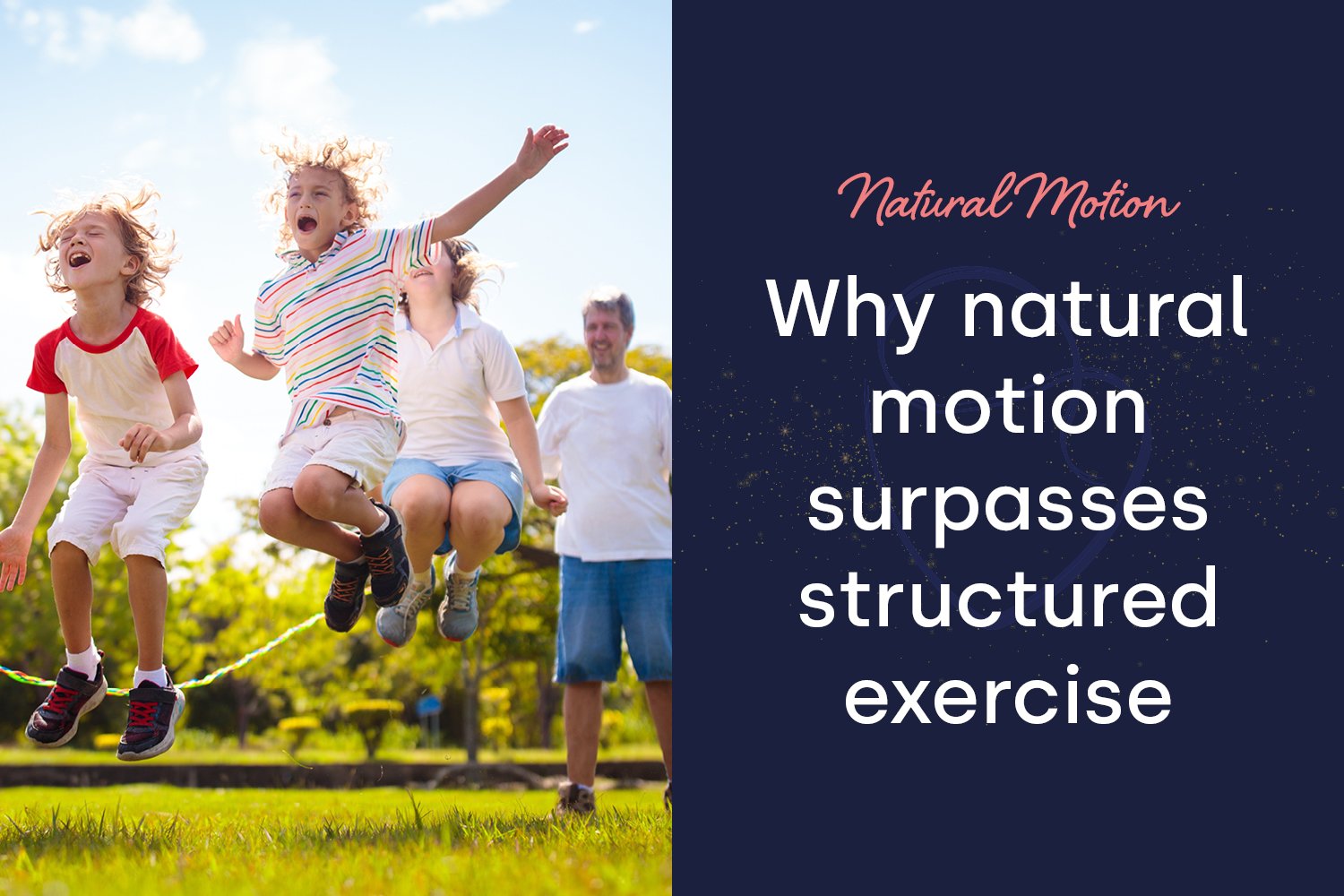
Many of us feel a sense of accomplishment after a good session at the gym or a brisk walk on the treadmill. We’ve done our duty for the day, ticking the “exercise” box.
While this structured activity is certainly good for us, it’s only one small part of a much larger picture. We have come to believe that exercise can compensate for a day spent sitting, but this overlooks a crucial truth.
Not all movement is created equal.
Let’s make a distinction.
‘Exercise’ is a specific, planned period of activity, often performed in a controlled environment.
‘Movement’ is the sum of every position and action your body performs throughout the entire day.
An hour on a cross-trainer is exercise. But what about the other 23 hours?
Relying solely on exercise is like trying to nourish your body for a whole week with one giant, healthy meal on a Sunday. It’s a great start, but it can’t replace the need for consistent, varied nourishment throughout the rest of the week.
Think about walking on a treadmill. The surface is perfectly flat, the pace is consistent, and the movement is repetitive. Now, compare that to a walk in the woods.
Your feet navigate uneven ground, your ankles and hips adjust to slopes, and your eyes scan the environment. You might squat to look at a flower or reach up to move a branch. This is a rich, complex, whole-body experience.
This variability is a nutrient. Uneven terrain strengthens the small stabilising muscles in your feet and legs. Carrying a shopping bag provides a different kind of load than lifting a perfectly balanced dumbbell. These natural motions feed your body in a way that repetitive exercise simply cannot.
Our bodies are designed for a diverse movement diet. The modern gym often isolates muscle groups, training them in predictable patterns. Natural motion, however, integrates them.
When you garden, you squat, twist, lift, and carry. When you play with your children at the park, you run, hang, and climb. These activities nourish your joints, muscles, and nervous system in a holistic way that a series of machines can’t replicate.
The goal isn’t to stop exercising. The goal is to see it as a supplement, not a substitute, for a life rich in natural motion.
Start by looking for small opportunities to move differently.
By shifting your focus from a single hour of exercise to a full day of movement, you provide your body with the varied signals it needs to stay strong, adaptable, and healthy for a lifetime.
If you feel your body’s ability to move freely has become restricted, we are here to help. Chiropractic care focuses on restoring motion where it has been lost, laying the foundation for you to rediscover the joy of natural movement.
Ready to move more freely? Book your appointment with us today.
Ewell Chiropractic
9A Cheam Road, Ewell, Epsom KT17 1SP
Our practice is next to the central car park in the Ewell village if you travel by car. And just a 10-minute wander from both train stations in Ewell.
Website design by theshapingbay.com